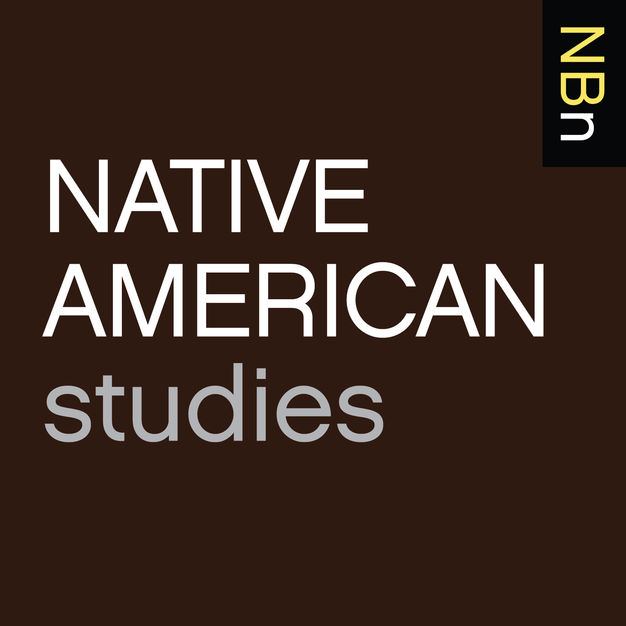
New Books in Native American Studies
Interviews with Scholars of Native America about their New Books
- 1 hour 1 minuteKathleen Lippa, "Arctic Predator: The Crimes of Edward Horne Against Children in Canada's North" (Dundurn, 2025)
After years of research, journalist Kathleen Lippa has written about the shocking crimes of a trusted teacher who wrought lasting damage on Inuit communities: Arctic Predator: The Crimes of Edward Horne Against Children in Canada’s North (Dundurn Press, February 2025). In the 1970s, a young schoolteacher from British Columbia was becoming the darling of the Northwest Territories education department with his dynamic teaching style. He was learning to speak the local language, Inuktitut, something few outsiders did. He also claimed to be Indigenous — a claim that would later prove to be false. In truth, Edward Horne was a pedophile who sexually abused his male students. From 1971 to 1985 his predations on Inuit boys would disrupt life in the communities where he worked — towns of close-knit families that would suffer the intergenerational trauma created by his abuse. In this book, Kathleen examines the devastating impact the crimes had on individuals, families, and entire communities. Her compelling work lifts the veil of silence surrounding the Horne story once and for all.
More about Kathleen Lippa:
Kathleen Lippa is a Canadian journalist, born in Toronto and raised in St. John’s, Newfoundland. Kathleen trained as a professional dancer at The Quinte Ballet School and The School of the Toronto Dance Theatre before embarking on a journalism career. At Memorial University, from which she graduated with a BA (English) in 1998, she worked on the student newspaper, the muse. Following graduation, she worked at a number of Canadian newspapers including The Express (St. John’s) where she won a Canadian Community Newspaper Association award for arts reporting, The Hanover Post (Ontario), a number of newspapers under the corporate umbrella of the Northern News Services, 24 Hours (Toronto), and the Calgary Sun. For Northern News Services, after a short stint in Yellowknife, Kathleen served as Bureau Chief in Iqaluit, Nunavut. Her experience includes writing, editing, page layout and design, and photography. Her Northern experience was in a cross-cultural setting primarily reporting news from Inuit communities. After spending many years in Iqaluit, Kathleen now lives with her husband in Ottawa and St. John’s.
About Hollay Ghadery:
Hollay Ghadery is an Iranian-Canadian multi-genre writer living in Ontario on Anishinaabe land. She has her MFA in Creative Writing from the University of Guelph. Fuse, her memoir of mixed-race identity and mental health, was released by Guernica Editions in 2021 and won the 2023 Canadian Bookclub Award for Nonfiction/Memoir. Her collection of poetry, Rebellion Box was released by Radiant Press in 2023, and her collection of short fiction, Widow Fantasies, was released with Gordon Hill Press in fall 2024. Her debut novel, The Unraveling of Ou, is due out with Palimpsest Press in 2026, and her children’s book, Being with the Birds, with Guernica Editions in 2027. Hollay is the host of the 105.5 FM Bookclub, as well as a co-host on HOWL on CIUT 89.5 FM. She is also a book publicist, the Regional Chair of the League of Canadian Poets and a co-chair of the League’s BIPOC committee, as well as the Poet Laureate of Scugog Township. Learn more about Hollay at www.hollayghadery.com.
Learn more about your ad choices. Visit megaphone.fm/adchoices
Support our show by becoming a premium member! https://newbooksnetwork.supportingcast.fm/native-american-studies
20 January 2025, 9:00 am - 43 minutes 45 secondsAndrew Laird, "Aztec Latin: Renaissance Learning and Nahuatl Traditions in Early Colonial Mexico" (Oxford UP, 2024)
Andrew Laird, of Brown University, discusses Aztec Latin: Renaissance Learning and Nahuatl Traditions in Early Colonial Mexico (Oxford University Press, 2024). In 1536, only fifteen years after the fall of the Aztec empire, Franciscan missionaries began teaching Latin, classical rhetoric, and Aristotelian philosophy to native youths in central Mexico. The remarkable linguistic and cultural exchanges that would result from that initiative are the subject of this book. Aztec Latin highlights the importance of Renaissance humanist education for early colonial indigenous history, showing how practices central to humanism — the cultivation of eloquence, the training of leaders, scholarly translation, and antiquarian research — were transformed in New Spain to serve Indian elites as well as the Spanish authorities and religious orders.
While Franciscan friars, inspired by Erasmus' ideal of a common tongue, applied principles of Latin grammar to Amerindian languages, native scholars translated the Gospels, a range of devotional literature, and even Aesop's fables into the Mexican language of Nahuatl. They also produced significant new writings in Latin and Nahuatl, adorning accounts of their ancestral past with parallels from Greek and Roman history and importing themes from classical and Christian sources to interpret pre-Hispanic customs and beliefs. Aztec Latin reveals the full extent to which the first Mexican authors mastered and made use of European learning and provides a timely reassessment of what those indigenous authors really achieved.
Learn more about your ad choices. Visit megaphone.fm/adchoices
Support our show by becoming a premium member! https://newbooksnetwork.supportingcast.fm/native-american-studies
18 January 2025, 9:00 am - 1 hour 21 minutesVictor M. Valle, "The Poetics of Fire: Metaphors of Chile Eating in the Borderlands" (U New Mexico Press, 2023)
Chile is more than just spice, writes Pulitzer prize-winning journalist and Cal Poly Ethnic Studies professor Victor Valle in The Poetics of Fire: Metaphors of Chile Eating in the Borderlands (U New Mexico Press, 2023). By tracing the meaning of chile as a plant and chile eating as an act. Valle shows how Indigenous cultivation and culinary practices troubled colonizers, sustained cultures, and fostered exchange. The Poetics of Fire calls for decolonization of chile cultivation and a renewed embrace of Indigenous ideals toward land and nourishment, arguing that chiles serve as a connection point between pre-colonization Indigenous societies and twentieth century (and beyond) Chicanx and Latinx communities. At once food studies, Indigenous studies, and Latinx studies, The Poetics of Fire dispenses with Scoville units and instead thinks about how chile is a window for understanding a decolonized world.
Learn more about your ad choices. Visit megaphone.fm/adchoices
Support our show by becoming a premium member! https://newbooksnetwork.supportingcast.fm/native-american-studies
17 January 2025, 9:00 am - 59 minutes 40 secondsSusan A. Brewer, "The Best Land: Four Hundred Years of Love and Betrayal on Oneida Territory" (Three Hills, 2024)
In Dr. Susan A. Brewer's fascinating The Best Land: Four Hundred Years of Love and Betrayal on Oneida Territory (Cornell University Press, 2024), she recounts the story of the parcel of central New York land on which she grew up. Brewer and her family had worked and lived on this land for generations when the Oneida Indians claimed that it rightfully belonged to them. Why, she wondered, did she not know what had happened to this place her grandfather called the best land. Here, she tells its story, tracing over the past four hundred years the two families—her own European settler family and the Oneida/Mohawk family of Polly Denny—who called the best land home.
Situated on the passageway to the west, the ancestral land of the Oneidas was coveted by European colonizers and the founders of the Empire State. The Brewer and Denny families took part in imperial wars, the American Revolution, broken treaties, the building of the Erie Canal, Native removal, the rise and decline of family farms, bitter land claims controversies, and the revival of the Oneida Indian Nation. As Dr. Brewer makes clear in The Best Land, through centuries of violence, bravery, greed, generosity, racism, and love, the lives of the Brewer and Denny families were profoundly intertwined. The story of this homeland, she discovers, unsettles the history she thought she knew.
With clear determination to tell history as it was, without sugarcoating or ignoring the pain and suffering of both families, Dr. Brewer navigates the interconnected stories with grace, humility, and a deep love for the land. The Best Land is a beautiful homage to the people, the place, and the environment itself.
This interview was conducted by Dr. Miranda Melcher whose new book focuses on post-conflict military integration, understanding treaty negotiation and implementation in civil war contexts, with qualitative analysis of the Angolan and Mozambican civil wars.
Learn more about your ad choices. Visit megaphone.fm/adchoices
Support our show by becoming a premium member! https://newbooksnetwork.supportingcast.fm/native-american-studies
12 January 2025, 9:00 am - 51 minutes 5 secondsRobert Wright, "Indigenous Autonomy at La Junta de Los Rios: Traders, Allies, and Migrants on New Spain's Northern Frontier" (Texas Tech UP, 2023)
Today I talked to Robert Wright about Indigenous Autonomy at La Junta de Los Rios: Traders, Allies, and Migrants on New Spain's Northern Frontier (Texas Tech UP, 2023).
The Indigenous nations of the valley of the Rio Grande that is now centered upon Ojinaga, Chihuahua, and Presidio, Texas―the La Junta valley in colonial times―had a long and unique history with Hispanics during the colonial period.
Their valley was the initial route to New Mexico and West Texas explored by Spanish conquistadors in the 1500s. In the mid-1600s, the Juntans began engaging in long-distance migrant labor in Nueva Vizcaya, and in the 1680s they began inviting Franciscan missionaries and serving as important military allies to Hispanic troops.
Yet for seventy-five years only the missionaries, without any Hispanic military or civilians, lived among them, due to both the remoteness of their valley from Hispanic settlements and the Juntans' insistence upon their autonomy. This is unique in Spanish colonial annals on the northern frontier of New Spain.
This detailed research study adds much new information and many corrections to the rare previous studies.
Learn more about your ad choices. Visit megaphone.fm/adchoices
Support our show by becoming a premium member! https://newbooksnetwork.supportingcast.fm/native-american-studies
12 January 2025, 9:00 am - 29 minutes 10 secondsAlex Cuadros, "When We Sold God's Eye: Diamonds, Murder, and a Clash of Worlds in the Amazon" (Grand Central Publishing, 2024)
Growing up in a remote corner of the world’s largest rainforest, Pio, Maria, and Oita learned to hunt wild pigs and tapirs, and gathered Brazil nuts and açaí berries from centuries-old trees. The first highway pierced through in 1960. Ranchers, loggers, and prospectors invaded, and the kids lost their families to terrible new weapons and diseases. Pushed by the government to assimilate, they struggled to figure out their new, capitalist reality, discovering its wonders—cars, refrigerators, TV sets, phones—as well as a way to acquire them: by selling the natural riches of their own forest home. They had to partner with the white men who’d hunted them, but their wealth grew legendary, the envy of the nation—until decades of suppressed trauma erupted into a massacre, bloody retribution that made headlines across the globe.
Based on six years of immersive reporting and research, When We Sold God's Eye: Diamonds, Murder, and a Clash of Worlds in the Amazon (Grand Central Publishing, 2024) tells a unique kind of adventure story, one that begins with a river journey by Theodore Roosevelt and ends with smugglers from New York City’s Diamond District. It’s a story of survival against all odds; of the temptations of wealth and the dream of prosperity; of an ecosystem threatened by our hunger for resources; of genocide and revenge. It’s a tragedy as old as the first European encounters with Indigenous people, playing out in the present day. But most of all, it’s the moving saga of a few audacious individuals—Pio, Maria, Oita, and their friends—and their attempts to adapt and even thrive in the most unlikely circumstances.
Learn more about your ad choices. Visit megaphone.fm/adchoices
Support our show by becoming a premium member! https://newbooksnetwork.supportingcast.fm/native-american-studies
8 January 2025, 9:00 am - 1 hour 18 minutesDean Itsuji Saranillio, "Unsustainable Empire: Alternative Histories of Hawai‘i Statehood" (Duke UP, 2018)
In Unsustainable Empire: Alternative Histories of Hawai‘i Statehood (Duke University Press, 2018), Dean Itsuji Saranillio offers a bold challenge to conventional understandings of Hawai‘i’s admission as a U.S. state. Hawai‘i statehood is popularly remembered as a civil rights victory against racist claims that Hawai‘i was undeserving of statehood because it was a largely non-white territory. Yet Native Hawaiian opposition to statehood has been all but forgotten. Saranillio tracks these disparate stories by marshaling a variety of unexpected genres and archives: exhibits at world's fairs, political cartoons, propaganda films, a multimillion-dollar hoax on Hawai‘i’s tourism industry, water struggles, and stories of hauntings, among others. Saranillio shows that statehood was neither the expansion of U.S. democracy nor a strong nation swallowing a weak and feeble island nation, but the result of a U.S. nation whose economy was unsustainable without enacting a more aggressive policy of imperialism. With clarity and persuasive force about historically and ethically complex issues, Unsustainable Empire provides a more complicated understanding of Hawai‘i’s admission as the fiftieth state and why Native Hawaiian place-based alternatives to U.S. empire are urgently needed.
Learn more about your ad choices. Visit megaphone.fm/adchoices
Support our show by becoming a premium member! https://newbooksnetwork.supportingcast.fm/native-american-studies
6 January 2025, 9:00 am - 54 minutes 41 secondsFarina King, "Diné dóó Gáamalii: Navajo Latter-day Saint Experiences in the Twentieth Century" (UP of Kansas, 2023)
In this deeply personal account, University of Oklahoma associate professor of Native American Studies Dr. Farina King describes the history and present of Diné dóó Gáamalii, Navajo people who, in her words, "walk a Latter-day Saints pathway." The book, Diné dóó Gáamalii: Navajo Latter-day Saint Experiences in the Twentieth Century (UP of Kansas, 2023), uses her family's history of life in the LDS church to explore the complicated and very human relationships Diné people have with so-called Mormonism. Refusing to be defined by easy stereotypes, King's account shows people coming to the church and remaining in the church for deeply personal and deeply felt reasons, often in the face of prejudice both from within and without wider Indigenous communities. Diné dóó Gáamalii is the story of complex religious life in the American West, and a history of acceptance being found sometimes where it might be least expected.
Learn more about your ad choices. Visit megaphone.fm/adchoices
Support our show by becoming a premium member! https://newbooksnetwork.supportingcast.fm/native-american-studies
26 December 2024, 9:00 am - 57 minutes 25 secondsLinda M. Clemmons, "Unrepentant Dakota Woman: Angelique Renville & the Struggle for Indigenous Identity, 1845-1876" (SDHS Press, 2023)
For much of her life, Angelique Renville had decisions made for her. Where to live, who to live with, where to attend school, what to do with her land. That changed in 1863 when she made a plan and successfully hatched her plan to escape, living the end of her life on her own terms. This is the story Dr. Linda Clemmons tells in Unrepentant Dakota Woman: Angelique Renville & the Struggle for Indigenous Identity, 1845-1876 (South Dakota State Historical Society Press, 2023).
Hers is a story, yes, of defeat and loss, but also so much more than that. Of a young woman carving her own path through a world in flux, and finding space to make choices even when those choices are limited. And it's a story with afterlives, as the web of connections created by Renville during her life continued even after her untimely death in 1876. As a work of biography, Unrepentant Dakota Woman does not pretend to speak for all Dakota women, or even all 19th century Dakota women born into fur trade families, but does show how one life can both embody the historical forces that shape our stories, and how our choices can overcome even the strongest headwinds.
Learn more about your ad choices. Visit megaphone.fm/adchoices
Support our show by becoming a premium member! https://newbooksnetwork.supportingcast.fm/native-american-studies
22 December 2024, 9:00 am - 53 minutes 53 secondsStephanie Rutherford, "Villain, Vermin, Icon, Kin: Wolves and the Making of Canada" (McGill-Queen's Press, 2022)
A wolf’s howl is felt in the body. Frightening and compelling, incomprehensible or entirely knowable, it is a sound that may be heard as threat or invitation but leaves no listener unaffected.
Toothsome fiends, interfering pests, or creatures wild and free, wolves have been at the heart of Canada’s national story since long before Confederation. Villain, Vermin, Icon, Kin: Wolves and the Making of Canada (McGill-Queen's University Press, 2022) by Dr. Stephanie Rutherford contends that the role in which wolves have been cast - monster or hero - has changed dramatically through time. Exploring the social history of wolves in Canada, Dr. Rutherford weaves an innovative tapestry from the varied threads of historical and contemporary texts, ideas, and practices in human-wolf relations, from provincial bounties to Farley Mowat’s iconic Never Cry Wolf. These examples reveal that Canada was made, in part, through relationships with nonhuman animals.
Wolves have always captured the human imagination. In sketching out the connections people have had with wolves at different times, Villain, Vermin, Icon, Kin offers a model for more ethical ways of interacting with animals in the face of a global biodiversity crisis.
This interview was conducted by Dr. Miranda Melcher whose new book focuses on post-conflict military integration, understanding treaty negotiation and implementation in civil war contexts, with qualitative analysis of the Angolan and Mozambican civil wars.
Learn more about your ad choices. Visit megaphone.fm/adchoices
Support our show by becoming a premium member! https://newbooksnetwork.supportingcast.fm/native-american-studies
18 December 2024, 9:00 am - 1 hour 3 minutesSusan Gaunt Stearns. "Empire of Commerce: The Closing of the Mississippi and the Opening of Atlantic Trade" (U Virginia Press, 2024)
Shortly after the ratification of the US Constitution in 1789, twenty-two-year-old Andrew Jackson pledged his allegiance to the king of Spain. Prior to the Louisiana Purchase, imperial control of the North American continent remained an open question. Spain controlled the Mississippi River, closing it to American trade in 1784, and western men on the make like Jackson had to navigate the overlapping economic and political forces at work with ruthless pragmatism.
In Empire of Commerce: The Closing of the Mississippi and the Opening of Atlantic Trade (University of Virginia Press, 2024), Dr. Susan Gaunt Stearns takes readers back to a time when there was nothing inevitable about the United States’ untrammeled westward expansion. Her work demonstrates the centrality of trade on and along the Mississippi River to the complex development of the political and economic structures that shaped the nascent American republic. Dr. Stearns’s perspective-shifting book reconfigures our understanding of key postrevolutionary moments—the writing of the Constitution, the outbreak of the Whiskey Rebellion, and the Louisiana Purchase—and demonstrates how the transatlantic cotton trade finally set the stage for transforming an imagined west into something real.
This interview was conducted by Dr. Miranda Melcher whose new book focuses on post-conflict military integration, understanding treaty negotiation and implementation in civil war contexts, with qualitative analysis of the Angolan and Mozambican civil wars.
Learn more about your ad choices. Visit megaphone.fm/adchoices
Support our show by becoming a premium member! https://newbooksnetwork.supportingcast.fm/native-american-studies
9 December 2024, 9:00 am - More Episodes? Get the App
Your feedback is valuable to us. Should you encounter any bugs, glitches, lack of functionality or other problems, please email us on [email protected] or join Moon.FM Telegram Group where you can talk directly to the dev team who are happy to answer any queries.
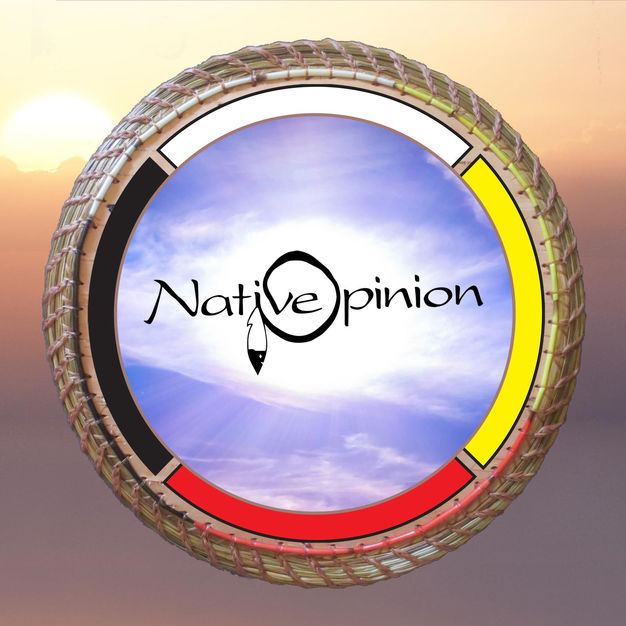 Native Opinion Podcast an American Indian Perspective
Native Opinion Podcast an American Indian Perspective
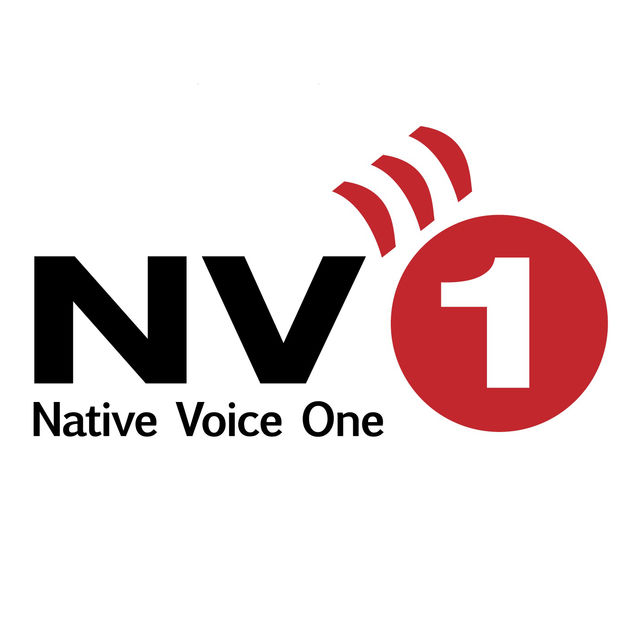 Native Voice One - The Native American Radio Network
Native Voice One - The Native American Radio Network
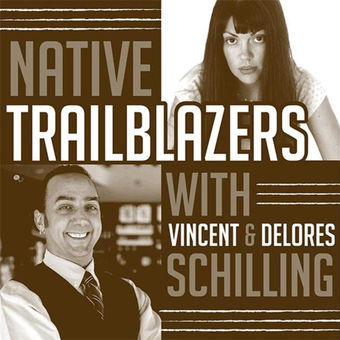 Native Trailblazers
Native Trailblazers
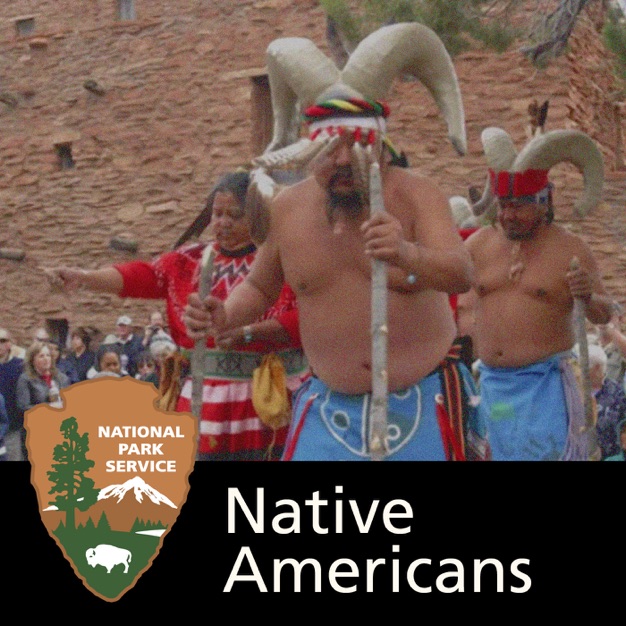 Native American Culture & History
Native American Culture & History
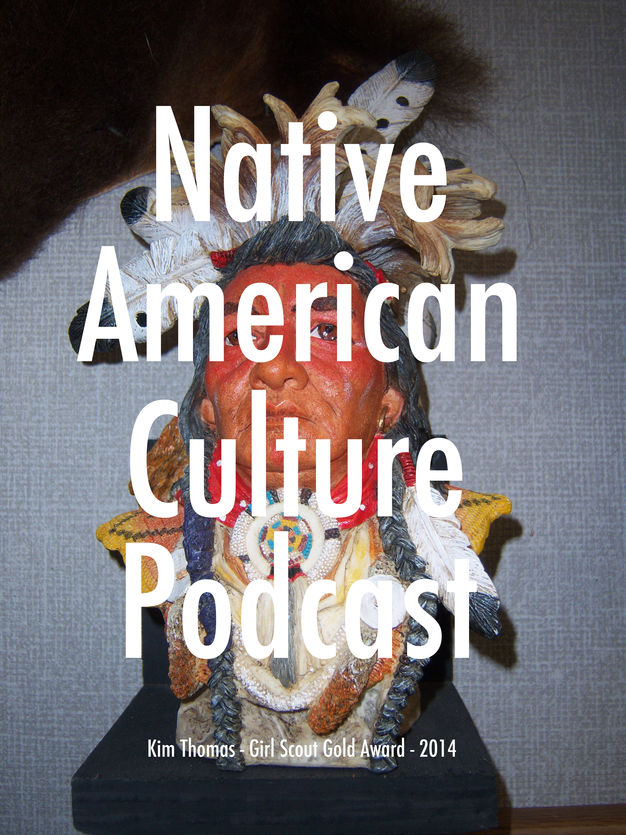 Native American Culture
Native American Culture
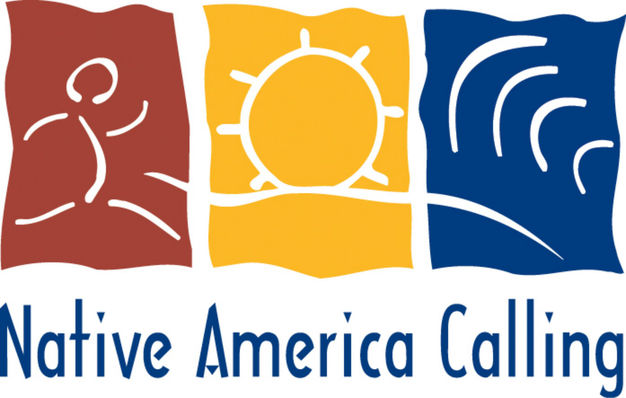 Native America Calling - The Electronic Talking Circle
Native America Calling - The Electronic Talking Circle